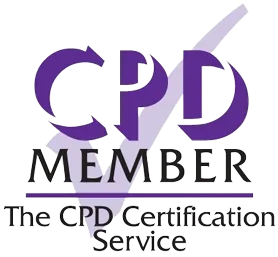29 Mar 2025
Recommended
Minimum 30 mins
Course
Access
Certification
Voiceover

The Conflict Resolution for Healthcare and Professional Settings course is designed to equip professionals with the knowledge and skills necessary to manage and resolve conflicts constructively. Conflict, whether between colleagues, within teams, or with clients and service users, can disrupt collaboration and service delivery. This course offers practical strategies to address conflict effectively, fostering a positive and cooperative work environment.
Aligned with UK guidelines and best practices, the course explores the causes of workplace conflict, including interpersonal, organisational, and cultural factors. Participants will develop key skills in active listening, empathy, assertiveness, and de-escalation to navigate disputes calmly and effectively. Additionally, the course covers advanced techniques in negotiation, mediation, and facilitation, along with legal and ethical considerations for handling workplace disputes.
By the end of this training, participants will be prepared to manage conflicts proactively, support collaborative relationships, and contribute to a culture of mutual respect and understanding within their organisations.

 £20
£20
Learning Outcomes.
By the end of this course,participants will be able:
To understand the causes, dynamics, and stages of conflict in professional settings.
To apply advanced communication techniques, including active listening and empathy, to de-escalate and resolve conflicts effectively.
To identify and address stressors that contribute to workplace conflicts, enhancing resilience and team collaboration.
To utilise negotiation and mediation skills to achieve constructive outcomes and maintain professional relationships.
To implement conflict resolution strategies that foster open communication and mutual respect in diverse workplaces.
To evaluate and refine conflict resolution processes through feedback, reflective practice, and continuous learning.
Course
Contents.
01
Causes, types, and early warning signs of conflict in professional settings.
03
Responses to conflict, its impact on teams, and the stages of escalation and resolution.
05
Frameworks for managing disputes, violence, and misconduct in the workplace.
08
Understanding the influence of diversity on workplace interactions and conflict.

06
Negotiation, mediation, and facilitation techniques for achieving constructive outcomes.
09
Using feedback and reflective practices to improve conflict management processes.
02
Key models and psychological principles of conflict resolution.
04
Techniques for active listening, empathy, assertiveness, and de-escalation.
07
Identifying and mitigating stressors to prevent and reduce conflict.
10
Encouraging open communication and mutual respect across professional teams.
This course provides healthcare and other professionals with essential conflict resolution skills, promoting collaboration and positive workplace interactions. Through evidence-based strategies, participants will gain the confidence to address conflicts constructively, reduce stress, and foster a culture of safety and mutual respect, ensuring alignment with UK best practices and ethical standards.
 Summary
Summary


